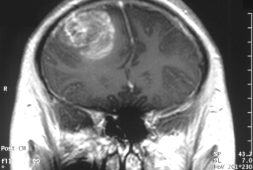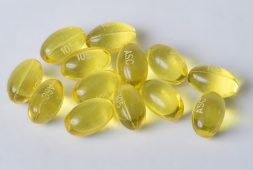
Arthritic pain can be debilitating. There are medicines available for it, but what sufferers may need right now is something more permanent. Paying for a monthly supply of medicines can be costly, but what’s even worse is that not all of them will work effectively for everyone.
Hence, scientists now have been searching high and low for the perfect solution so that one day, rheumatoid arthritis will no longer be a problem for anyone. And the good news is that researchers may have finally come across a solution that will help them.
All about Suffering from Rheumatoid Arthritis (RA)
Rheumatoid arthritis (RA) is an autoimmune condition. It causes inflammation, oftentimes found in the joints. The pain caused by this is chronic and it can be debilitating. At this point in time, there is no known cure for it. However, studies are constantly being conducted and the latest one makes use of an animal model. Findings somehow hint to the fact that a vaccine to prevent RA may be possible in the near future.
As mentioned earlier, RA is a debilitating chronic condition that affects the joints in the body. It can cause pain. Because of this, the sufferer’s ability to function lowers. While those who have it are able to properly manage the condition, there is still no known cure at this time.
However, a new study has been made and the findings are published in the Proceedings of the National Academy of Sciences. In it are reports that give people hope for a vaccine to help prevent this from happening at all. What the study did was examine a certain protein and its influence on the development of arthritis. They performed the experiment on rats.
RA and Its Meaning
Arthritis simply implies that there is inflammation in the body’s joints. The term, however, is generalized. Specific terms are given on the many types of conditions that impact the joints. In gist, RA is an autoimmune disease. This means that the body makes a mistake and attacks its own tissues as a result. When the immune system attacks, inflammation in the joints and joint damage happens, and as a result, the person feels chronic pain.
According to the Arthritis Foundation (AF), joint pain, swelling, or stiffness typically can last as long as 6 weeks or perhaps even longer. It oftentimes begins in the smaller joints of the body. The person might start feeling pain in the bones of the wrists and hands, and these symptoms are found in the same joints on both sides of the body. The fact that there is no permanent cure available, pain management is the most important at this point.
A recent episode of the AF podcast “Live Yes with Arthritis,” an occupational therapist spoke. Her name is Rebecca Gillett. She explained how the disease works and said, “pain is a personal experience that is influenced by many factors […] There is no one-size-fits-all approach when it comes to pain, but one of the first steps is identifying unique challenges and triggers.”
Currently, management of the condition includes medications and a variety of other strategies. For instance, the sufferers are encouraged to practice an active lifestyle. They are also asked to maintain a moderate body weight and take precautionary measures to give their joints further protection from different types of injuries.
Possible Vaccine Available for RA
The authors who are studying the possible cure for RA shifted their focus on a specific type of protein — the 14-3-3 zeta — and the role it plays in arthritis. They first theorized that this protein is actually a contributing factor to the development of the disease. As they dove deeper into the research, they discovered that when they removed the protein in an animal model of RA, the arthritis became more pronounced.
Dr. Ritu Chakravarti spoke to Medical News Today. She explained how this protein actually acts as an antigen. In layman’s terms, this triggers the immune system to fight it. She stated, “[T]he moment we saw it was an antigen, we assumed that is a bad thing. You always have this bias that antigens are bad.”
The scientists did a investigation on the development of arthritis in relation to 14-3-3 zeta. The rats were used in the test. They used these genetically engineered rats whose bodies did not produce 14-3-3 zeta. Then, they induced arthritis in their bodies. When they compared the rodents with the ones that still produced 14-3-3 zeta in their immune system, those that lacked the protein lost bone and body weight. Moreover, they also eventually developed severe joint inflammation.
In the experimental rats, there were three phases involved when it came to the development of arthritis: a period where they exhibited no symptoms, a period with enhanced and severe inflammation of the joints, and a period where the inflammation began to go down and lower. They then tested whether the infusion of antibodies to 14-3-3 zeta after the onset of the disease would actually help with the symptoms and they discovered that this type of treatment was actually ineffective. After that, they tested to see whether an immunization that contained 14-3-3 zeta would prevent symptoms from happening altogether. So, they immunized these rats a day after the induction of the disease. This was the period that they exhibited no symptoms. A week after the induction, they then gave the rats a booster shot for further confirmation.
The findings were interesting. They saw that the vaccination with the 14-3-3 zeta protein minimized joint inflammation. It also lowered the severity of arthritis, thus helping preserve bone quality. Dr. Chakravarti was fascinated and excited with the results they came up with. While this was not what the team of researchers had initially expected to find, it was a breakthrough nevertheless. She talked to MNT and said, “There is no cure for RA. And this is probably one of the first studies that shows that you can prevent RA.”
Research Moving Forward
The study was conducted in rats. While this helps immensely, the scientists behind the research will need to carry out further and more elaborate studies. Still, many believe that the findings in the study is a significant step forward when it comes to giving quality treatment options for those who suffer from RA.
Dr. Chakravarti pointed out the next two major next involved in their investigation. Firstly, “we need to see how this actually works in impacted individuals. Can this vaccine actually prevent the disease in humans?” The second significant component of the study requires them to fully understand how this particular protein influences the symptoms and development of RA or arthritis in general.
Dr. Chakravarti said to MNT how researchers need to fully comprehend “how it is working. […] We really need to understand it in more detail, because once we know the mechanism of its action, then we will know what other diseases we can use this for. Can we prevent multiple sclerosis, or can we prevent any other musculoskeletal diseases?”



